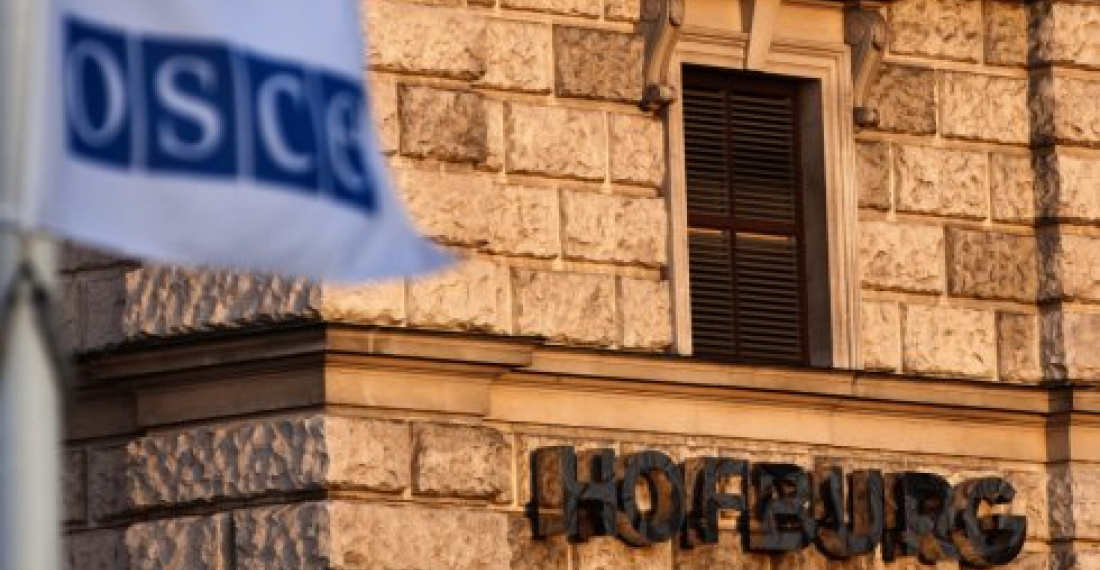Both countries have used the veto procedure to block aspects of the work of the OSCE, despite widespread frustration and consternation in the international community
There is widespread frustration and consternation in the international community as a result of squabbles in the permanent council of the Organisation for Security and Co-operation in Europe (OSCE), which has seen both Armenia and Azerbaijan exercising their veto power in order to block aspects of the work of the organisation. Although this is not the first time the two countries have engaged in this sort of brinkmanship diplomacy, political observers feel that the current disputes are more serious than usual.
The latest incidents started when Azerbaijan objected to the inclusion of mine clearance projects as part of the mandate of the OSCE Office in Yerevan. Its diplomats insisted that this was an activity related to the Nagorno-Karabakh conflict and needed to be addressed within the framework of the Minsk Group. Azerbaijan subsequently vetoed the budget of the OSCE office in Yerevan. In what was seen as a tit-for tat action, Armenia subsequently threatened to veto the budget of a number of OSCE offices and missions.
The Austrian Foreign Minister, who currently holds the chairmanship of the OSCE, engaged with the two sides at various levels in order to try to resolve the impasse. Armenian Foreign Minister, Eduard Nalbandian was in Vienna on Friday, 27 January for meetings with the Chairmanship, and with the OSCE Secretariat. A meeting of the OSCE Permanent Council, the organisation's governing body where all the 57 member states are represented, took place the same day
A spokesperson for the OSCE told commonspace.eu that "at the meeting of the Permanent Council a decision was taken to extend mandates of the OSCE Observer Mission at the Russian Checkpoints of Gukovo and Donetsk , the Centre in Bishkek and the Project Co-ordinator in Uzbekistan".
In a statement on the same day, the Austrian OSCE Chairmanship stressed "the importance of renewing all remaining decisions on open mandates, namely the Office in Yerevan as well as the Office in Tajikistan, in order to allow the OSCE to function effectively and efficiently through its field operations". The statement added that "consensus has yet to be reached on the formal decision for that due to outstanding decisions on other issues. The statement added that "the OSCE Chairmanship continues to remain actively engaged with a view to finding early agreement."
A spokesperson for the OSCE in Vienna told commonspace.eu that "pending agreement on the remaining mandate extensions by the participating States, the field operations remain open and will continue administrative, non-mandate-related work."
Commonspace.eu political editor said in a comment that "the diplomatic language hides a sense of frustration and consternation in the international community at the attitude of Armenia and Azerbaijan in the OSCE structures. The use of veto is not a new tool in the OSCE councils, and has been used by countries large and small in the CSCE/OSCE framework before. Even the signing of the Helsinki Final Act was threatened way back in 1975, by one of the smallest member states. But now the veto is becoming the main tool in the strategy of Armenia and Azerbaijan in the OSCE framework, and diplomats are concerned that the problem is spilling over from issues related to the Karabakh conflict, and may affect other aspects of the OSCE work. Part of the problem is that there is very little public or media scrutiny of the work within the OSCE, and so very little political cost for member states in answering to their actions. But diplomats fear that the OSCE's already fragile existence may be put to further risk if the organisation is deemed to be dysfunctional. On the other hand there is no appetite in diplomatic circles for removing the veto right of member states - complete consensus was the principle on which the Helsinki Final Act was built, and to remove that is considered as a step weakening the legitimacy of the OSCE and its work.
So diplomats are expected to continue working patiently so that the work of the OSCE in Armenia and Tadjikistan can be resumed as soon as possible."
source: commonspace.eu with osce.org and agencies







